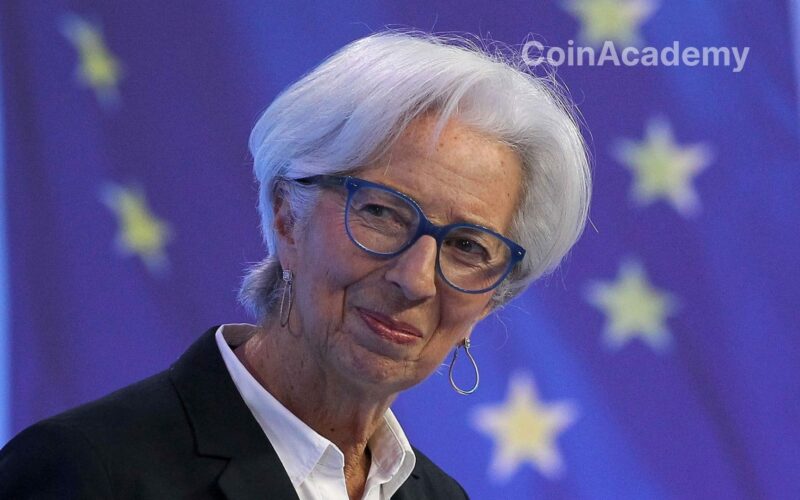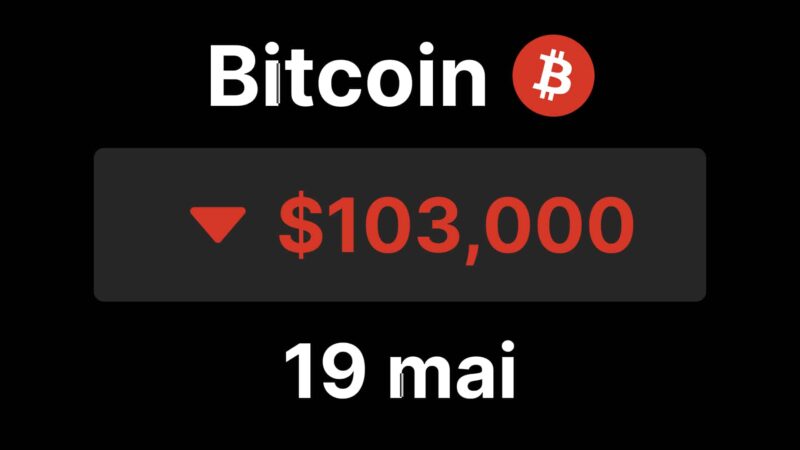European Central Bank Reduces Interest Rates Amid Economic Slowdown
The European Central Bank (ECB) has announced a 0.25% reduction in its interest rates, bringing it down to 3.5%. This decision comes as inflation slows down to 2.2% in August and signs of economic stagnation appear in the eurozone.
The ECB’s growth forecast for 2024 has been revised down to 0.8%, and financing conditions remain challenging with weak consumption and insufficient investment.
The rate cut could encourage investments in cryptocurrencies, with increased potential for Bitcoin to be seen as a safe haven asset in a low-interest-rate environment.
Inflation Under Control, Economy Slowing Down
The financing conditions remain restrictive, and economic activity is still weak, reflecting weak private consumption and inadequate investment, according to the ECB.
Inflation in the eurozone has significantly slowed down, reaching 2.2% in August, its lowest level in three years, down from 2.6% in July. This decline in inflation, combined with a decrease in industrial production in Germany and Italy, indicates an economic slowdown following a slight recovery earlier this year.
The ECB justifies its decision by stating that wage cost pressures are starting to stabilize, while companies absorb some of the wage increases to limit their impact on inflation. However, financing conditions remain restrictive, with weak private consumption and insufficient investment hampering economic recovery.
According to the latest quarterly forecasts by the ECB, growth for 2024 is revised down to 0.8%, slightly lower than the previously estimated 0.9%. For 2025, the growth forecast is also lowered from 1.4% to 1.3% due to weaker domestic demand. Inflation forecasts remain stable at 2.5% for this year and 2.2% for 2025.
A Monetary Policy That Resonates Globally
The ECB’s decision is part of a global context of looser monetary policies, as other major central banks, such as the US Federal Reserve, are also preparing to lower interest rates. After the inflation surge of the past two years, mainly due to the energy crisis and supply chain disruptions, signs indicate that global inflation is stabilizing. Central banks are therefore adjusting their strategies to support growth.
Impact on the Crypto Market
This interest rate cut in Europe also has implications for financial markets, including the cryptocurrency sector. Historically, expansionary monetary policies with lower interest rates tend to encourage investments in riskier assets, including crypto.
With lower borrowing costs and potentially reduced returns on traditional assets such as bonds, investors may turn to Bitcoin and other cryptocurrencies again to diversify their portfolios and seek more attractive yields.
In addition, the pressure on fiat currencies, such as the euro, could also enhance the attractiveness of digital currencies, which some investors consider as protection against currency depreciation. Bitcoin, often referred to as ‘digital gold,’ has historically benefited from periods of economic uncertainty and low interest rates, attracting capital seeking a safe-haven value.
The Global Context for Bitcoin and the Crypto Economy
However, despite the potential opportunities for the crypto market, caution is advised. Global economic uncertainty, particularly in Europe, could lead to increased volatility in digital asset markets. As institutional investors continue to enter the cryptocurrency market through products like Bitcoin ETFs, the market’s response to monetary policy adjustments, both in Europe and the United States, will be crucial in the months ahead.




